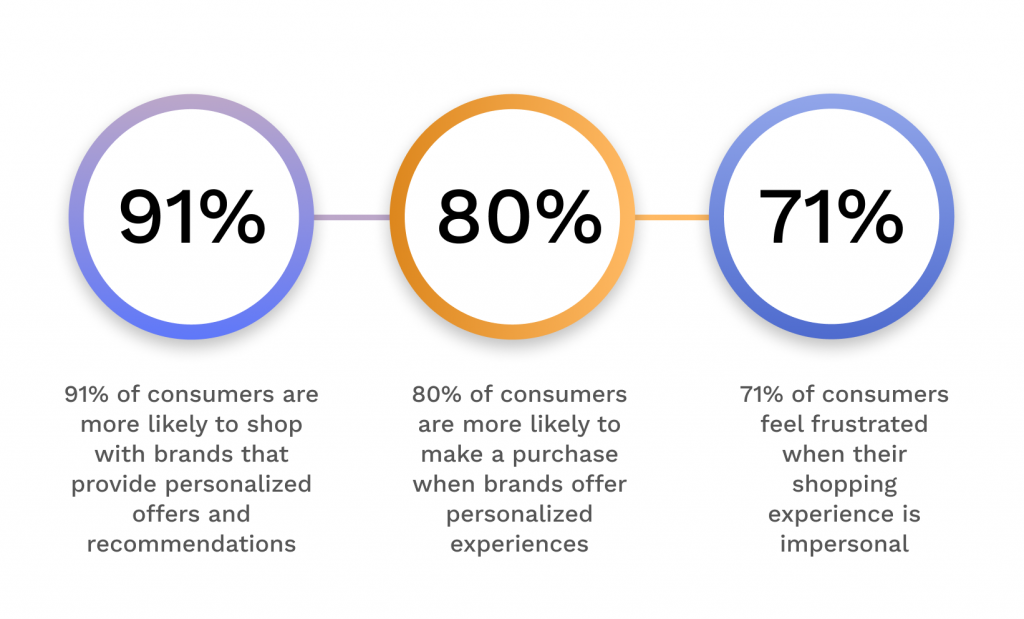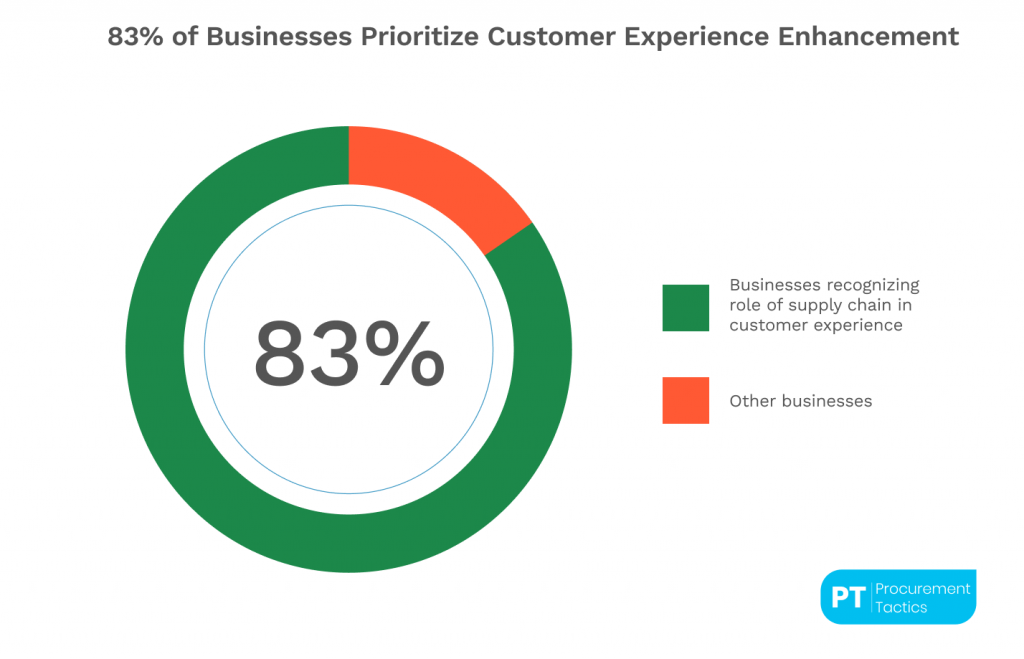8 Ways to use AI for a Competitive Edge this Holiday Season
8 Ways to use AI for a Competitive Edge this Holiday Season
Artificial Intelligence (AI) has profoundly impacted various sectors, and eCommerce stands out as one of its prime beneficiaries. Within this domain, competitive intelligence – the process of collecting and analyzing information about competitors – has undergone a significant transformation thanks to AI.
Traditional methods of gathering competitor insights are now augmented and, in many cases, outpaced by AI-driven tools and techniques. These advanced capabilities allow businesses to gain deeper insights, make informed decisions, and strategize with unparalleled precision.
In this blog post, we explore the multifaceted influence of AI on competitive intelligence in eCommerce, showcasing how modern businesses are leveraging it to gain a definitive edge in the market.
1. Real-time Market Analysis
In the fast-paced digital landscape, eCommerce businesses must be agile. AI offers the ability to monitor and interpret market shifts in real-time, providing a clear edge. By analyzing online behaviors, sales patterns, and competitor movements, AI delivers actionable insights for immediate strategy adjustments.
Quick responses to market changes can significantly boost profitability. Consider this: McKinsey & Company highlighted that businesses harnessing real-time data can enhance their EBITDA by up to 25%. Such insights underscore the importance of integrating AI-driven real-time analytics.
For eCommerce platforms, this translates to the capability to:
- Adjust prices dynamically
- Fine-tune promotions based on current trends
- Manage inventory efficiently
Leveraging real-time insights from AI ensures businesses not only keep up, but lead in their respective markets.
2. Chatbots and Virtual Assistants for Enhanced Customer Service
Customers expect prompt responses to their queries, and they don’t always want to wait for a human representative. AI-driven chatbots and virtual assistants offer immediate, round-the-clock support.
These AI tools can handle a wide range of tasks, including:
- Answering frequently asked questions
- Guiding users through website navigation
- Assisting with checkouts
- Processing returns
Their ability to instantly respond, coupled with ever-improving conversational capabilities, means customers can get the help they need without delays.
According to a recent study, 69% of consumers prefer chatbots for quick communication with brands.

In leveraging AI for competitive intelligence, not only can businesses offer better customer service, but they can also reduce operational costs and free up human representatives for more complex tasks.
Implementing AI-powered chatbots and virtual assistants ensures that eCommerce businesses can meet the growing demand for instant support, enhancing customer satisfaction and driving loyalty in the process.
3. Predictive Analytics for Inventory Management
Managing inventory is a balancing act for eCommerce businesses. Overstock and you’re stuck with unsold products; understock and you miss out on potential sales. AI’s predictive analytics can make this task a whole lot easier and more efficient.
By analyzing past sales data, customer behaviors, and current market trends, AI can forecast future demand with impressive accuracy. This isn’t just about avoiding stockouts, but rather:
- Optimizing warehouse space
- Reducing holding costs
- Ensuring products are ready to ship when customers click ‘buy’
A study by the Boston Consulting Group revealed that businesses adopting advanced analytics for inventory optimization can reduce stockouts by up to 30% and increase sales by 14%. That’s a tangible advantage in the competitive world of eCommerce.
By harnessing the power of predictive analytics, businesses can stay a step ahead, ensuring they meet customer demand while optimizing their inventory costs.
4. Price Optimization
Setting the right price can be the difference between a sale and a missed opportunity for eCommerce businesses. But with market dynamics constantly in flux, determining that perfect price point isn’t straightforward.
By diving deep into data such as purchase histories, competitor pricing, and demand fluctuations, AI provides insights into how prices should be set or adjusted in real-time. This way, businesses can maximize profit margins while ensuring customers see value.
According to an article by Forbes, businesses that leverage AI for price optimization can boost revenue by 9% and sales by 24.7%. In the world of eCommerce, these numbers can translate to a significant competitive advantage.
By tapping into the capabilities of AI-driven price optimization, eCommerce businesses can make informed pricing decisions that drive sales and enhance profitability.
5. Personalization for Better Customer Engagement
In today’s eCommerce landscape, customers seek more than just products. They crave personalized experiences. With AI-driven personalization tools, businesses can tailor their offerings to individual customer preferences, leading to deeper engagement and increased loyalty.
By analyzing a customer’s browsing habits, purchase history, and even feedback, AI can:
- Craft personalized product recommendations
- Tailor email campaigns
- Customize website experiences
Instead of seeing generic promotions, customers are presented with content that resonates with their preferences and needs.
According to a study by Epsilon, 80% of consumers are more likely to make a purchase when brands offer personalized experiences. This demonstrates the direct impact personalization has on sales and customer retention.

For eCommerce businesses, leveraging AI for personalization means not just attracting customers, but also ensuring they keep coming back. By offering a shopping experience that feels tailor-made, businesses can stand out in a crowded market and foster lasting customer relationships.
6. Customer Sentiment Analysis
Understanding how customers feel about products, services, or a brand as a whole is pivotal for any eCommerce business. AI-driven customer sentiment analysis allows businesses to assess customer feedback and extract meaningful insights.
By sifting through reviews, social media mentions, and other feedback channels, AI can gauge the mood of the customer base. Whether it’s excitement about a new product launch or frustration with a recent change, AI picks up on these sentiments and categorizes them, providing a clear picture of overall customer satisfaction.
In the realm of eCommerce, where customer loyalty can be fickle, understanding and acting on these sentiments is key to long-term success. Harnessing AI allows businesses to be more responsive, tailoring their offerings and communications to align with what their customers truly want and feel.
7. Supply Chain Optimization
A seamless supply chain is the backbone of any successful eCommerce business. With multiple moving parts, from sourcing raw materials to delivering the final product to customers, any hiccup can lead to delays, added costs, and unhappy customers.
AI comes to the rescue, offering tools that streamline and optimize every step of the supply chain.
By analyzing historical data, current market conditions, and predictive trends, AI can forecast demand, helping businesses decide how much to produce and when. Beyond just production, AI can also assist in optimizing routes for transportation, ensuring products move efficiently from warehouses to customers.
According to Gartner, 83% of businesses now see the supply chain as key to improving customer experience.

As a result, many are putting customer experience at the heart of their digital strategies. In the fast-paced world of eCommerce, where timely delivery can be a major differentiator, an optimized supply chain is invaluable.
8. Competitor Campaign Analysis
Keeping an eye on competitors is crucial, and AI takes this surveillance to the next level. Competitor campaign analysis powered by AI provides businesses with insights into the marketing moves and strategies employed by their rivals.
AI tools can monitor a range of competitor activities, including:
- Email marketing blasts
- Social media posts
- Paid advertising efforts
- Website changes
This continuous monitoring allows businesses to identify successful strategies, spot emerging trends, and even anticipate competitor moves. In an environment where every advantage counts, being able to quickly adapt based on competitor actions can be a game-changer.
By leveraging AI for competitor campaign analysis, eCommerce businesses can ensure they’re not just reacting to the market, but proactively strategizing to stay ahead of the competition.
Harness the Power of Competitive Intelligence with Hypersonix
Harnessing AI’s capabilities is the cornerstone of competitive intelligence in the eCommerce landscape.
From real-time market insights to tailored customer experiences, AI provides the tools that set businesses apart in a crowded market.As the digital realm continues to evolve, businesses that integrate AI will not only keep pace but set the standard for excellence in customer engagement.
Hypersonix is a profit optimization platform that uses AI-powered tools to help DTC and eCommerce companies excel. Hypersonix’s ProfitGPT inventory management tools can help businesses leverage generative AI and inventory intelligence to provide actionable insights about inventory levels and pricing strategies.
To see how Hypersonix’s AI tools can help automate your pricing strategy, request a demo today!





